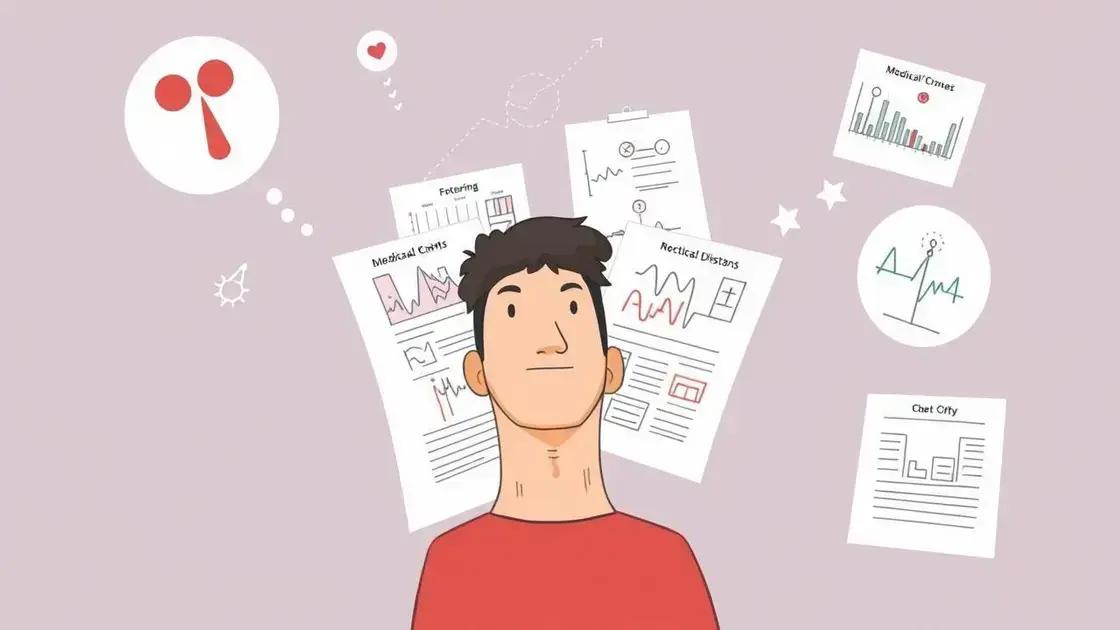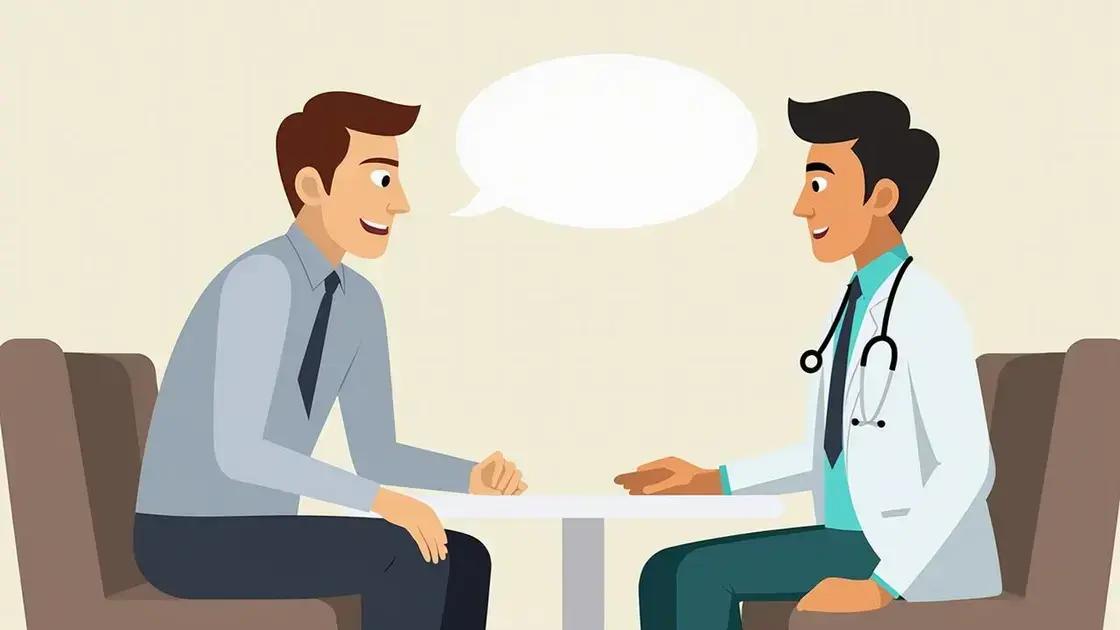Erectile dysfunction (ED) can require ongoing medical care and various treatment options, including medications, therapy, and lifestyle changes. It is important to communicate openly with partners and seek professional help when experiencing persistent symptoms. With the right support and lifestyle adjustments, individuals can live well and maintain fulfilling relationships despite ED.
Erectile dysfunction (ED) affects millions of men and can certainly impact relationships and quality of life. Understanding whether erectile dysfunction requires ongoing medical care is vital for effective management and treatment. In this article, we will discuss what erectile dysfunction is, the importance of seeking medical advice, when it’s necessary to seek help, available treatment options, and how to live well with this common condition.
Understanding Erectile Dysfunction

Erectile dysfunction (ED) is a common condition affecting many men, characterized by the inability to achieve or maintain an erection suitable for sexual intercourse. It can occur occasionally or frequently and can be caused by a variety of physical and psychological factors.
Types of Erectile Dysfunction
ED can be categorized into two main types: primary and secondary. Primary ED refers to men who have never been able to achieve an erection, while secondary ED refers to those who have had normal erections in the past but now face challenges.
Causes of Erectile Dysfunction
The causes of erectile dysfunction may include:
- Medical Conditions: Health issues like diabetes, heart disease, and high blood pressure can impact blood flow and nerve function.
- Psychological Factors: Stress, anxiety, and depression can also lead to ED by affecting sexual desire and arousal.
- Lifestyle Choices: Poor diet, lack of exercise, smoking, and excessive alcohol consumption can contribute to the development of ED.
Symptoms of Erectile Dysfunction
Common symptoms of erectile dysfunction include:
- Inconsistent ability to get an erection.
- Difficulty maintaining an erection during sexual activities.
- Reduced sexual desire or libido.
When Should You See a Doctor?
If you experience symptoms of erectile dysfunction frequently, it is important to consult a healthcare provider. They can help determine the underlying cause and suggest appropriate treatment options.
The Importance of Ongoing Medical Care

Ongoing medical care is crucial for individuals facing erectile dysfunction (ED). Regular check-ups allow healthcare providers to monitor the condition, identify any changes, and adjust treatment plans as necessary. A consistent relationship with a doctor can provide vital support in managing the emotional and psychological aspects of ED.
Understanding Your Condition
With ongoing medical care, patients can gain a better understanding of the underlying causes of their ED. This helps in selecting the right treatment options and addressing any contributing health factors, such as high blood pressure or diabetes.
Continuous Treatment and Management
Erectile dysfunction is not always a one-time issue. Consistent care helps in tracking the effectiveness of treatments, such as medications or therapy, and ensures that patients receive the best possible outcomes. Adjustments can be made if the current treatment isn’t working.
Emotional Support
ED can be challenging, leading to feelings of shame or anxiety. Ongoing medical care provides a safe space where patients can express their concerns and feelings freely. Mental health support, such as counseling, can also be integrated into the treatment plan.
Awareness of Other Health Risks
Men with ED may be at risk for other health conditions. Regular visits to a healthcare provider can help in early detection of these issues, allowing for timely intervention. Conditions like heart disease and diabetes may be linked to ED, and managing these can improve overall health.
Building Healthier Relationships
Ongoing care offers the opportunity for discussions about sexual health with both partners. This engagement can strengthen relationships and improve intimate connections, as both individuals learn more about managing ED together.
When to Seek Help for ED

Recognizing when to seek help for erectile dysfunction (ED) is vital for effective management and treatment. If you experience any ongoing issues with achieving or maintaining an erection, it’s important to talk to a doctor.
Persistent Symptoms
If you notice that erectile dysfunction is happening frequently or consistently over several weeks or months, this is a strong signal to seek medical help. Occasional difficulties may be normal, but persistent issues should be addressed.
Impact on Relationships
When ED starts to affect your relationships or emotional well-being, it’s time to consult a healthcare professional. Open communication with your partner about the issue can also help, but professional guidance is crucial.
Associated Health Concerns
If you have other health conditions, such as diabetes or heart disease, and begin to notice symptoms of ED, seek help promptly. These conditions can complicate ED and may require specialized treatment.
Changes in Sexual Desire
A noticeable decrease in sexual desire or libido alongside ED may indicate underlying issues that need attention. Discuss any changes with your doctor to explore potential causes and solutions.
Seeking Expert Advice
It is beneficial to consult a healthcare provider who specializes in sexual health. They can offer tailored advice and possible treatments to manage ED effectively.
Treatment Options Available

There are several treatment options available for erectile dysfunction (ED). Each option may work differently depending on the underlying causes of ED, and it is important to work with a healthcare provider to find the best solution.
Medications
Prescription medications are often the first step in treating ED. Drugs like Viagra (sildenafil), Cialis (tadalafil), and Levitra (vardenafil) can help increase blood flow to the penis, making it easier to achieve an erection. These medications require sexual stimulation to be effective.
Therapy and Counseling
If emotional or psychological issues contribute to ED, therapies such as cognitive behavioral therapy (CBT) or couples counseling may be beneficial. Talking to a professional can help address issues like anxiety, stress, and relationship problems.
Vacuum Erection Devices
Vacuum erection devices create a vacuum around the penis, drawing blood into it and resulting in an erection. A constriction ring is then placed at the base of the penis to maintain the erection during sexual activity.
Pearl Injections
For some men, hormone therapy or injections of medications such as alprostadil can help. These injections can be self-administered and work by increasing blood flow and promoting an erection.
Surgical Options
In cases where other treatments fail, surgical options might be considered. Procedures such as penile implants involve placing devices inside the penis to facilitate erections. This is typically reserved for severe cases of ED.
Lifestyle Changes
Implementing healthy lifestyle changes like exercising regularly, maintaining a healthy weight, quitting smoking, and reducing alcohol intake can significantly improve erectile function.
Living Well with Erectile Dysfunction

Living well with erectile dysfunction (ED) is possible through a combination of effective treatment, emotional support, and lifestyle changes. Taking proactive steps can significantly improve your quality of life.
Open Communication
Communicating openly with your partner about ED can reduce anxiety and strengthen relationships. Sharing feelings and concerns helps both partners understand the situation and support each other.
Focus on Intimacy
Remember that intimacy is not only about sexual intercourse. Explore other ways to connect with your partner, such as cuddling, kissing, and sharing experiences. This can help maintain a loving bond despite the challenges of ED.
Adopt a Healthy Lifestyle
Making healthy lifestyle choices can improve your overall well-being and erectile function. Regular exercise, a balanced diet, maintaining a healthy weight, and quitting smoking can greatly benefit sexual health.
Stress Management
Managing stress through relaxation techniques, such as yoga or meditation, can help reduce anxiety related to ED. Finding activities that you enjoy can also offer an emotional release and improve mental health.
Maintain Regular Check-ups
Keep regular appointments with your healthcare provider to discuss your ED and any treatments you are undergoing. This allows for monitoring, adjustments, and additional support if needed.
Join Support Groups
Consider joining a support group for men dealing with ED. Sharing experiences and advice with others who understand can help alleviate feelings of isolation and frustration.
In Conclusion: Navigating Life with Erectile Dysfunction
Erectile dysfunction (ED) is a common condition that many men face, but it does not have to define your life. Understanding when to seek help, the available treatment options, and the importance of ongoing medical care is crucial in managing ED effectively.
By fostering open communication with partners, focusing on intimacy, and making healthy lifestyle choices, individuals can live well despite the challenges that ED presents.
It’s essential to remain proactive in seeking support and maintaining regular check-ups to enhance overall well-being. Embracing these strategies can lead to better management of ED and a more fulfilling life.
Finally, remember that you are not alone in this journey, and resources are available to help you navigate both the emotional and physical aspects of erectile dysfunction.
FAQ – Frequently Asked Questions about Erectile Dysfunction
What is erectile dysfunction?
Erectile dysfunction (ED) is the inability to achieve or maintain an erection sufficient for sexual activity.
When should I seek help for erectile dysfunction?
You should seek help if you experience persistent issues with erections, changes in sexual desire, or if it’s affecting your relationships.
What treatment options are available for ED?
Treatment options include medications, therapy, vacuum erection devices, injections, surgical options, and lifestyle changes.
How can lifestyle changes help with ED?
Healthy lifestyle choices, such as regular exercise, a balanced diet, and quitting smoking, can significantly improve erectile function.
Is communication with my partner important?
Yes, open communication with your partner about ED can help reduce anxiety and strengthen your relationship.
Can I live well with erectile dysfunction?
Absolutely! With the right support, treatment, and lifestyle changes, many men successfully manage ED and maintain fulfilling relationships.












